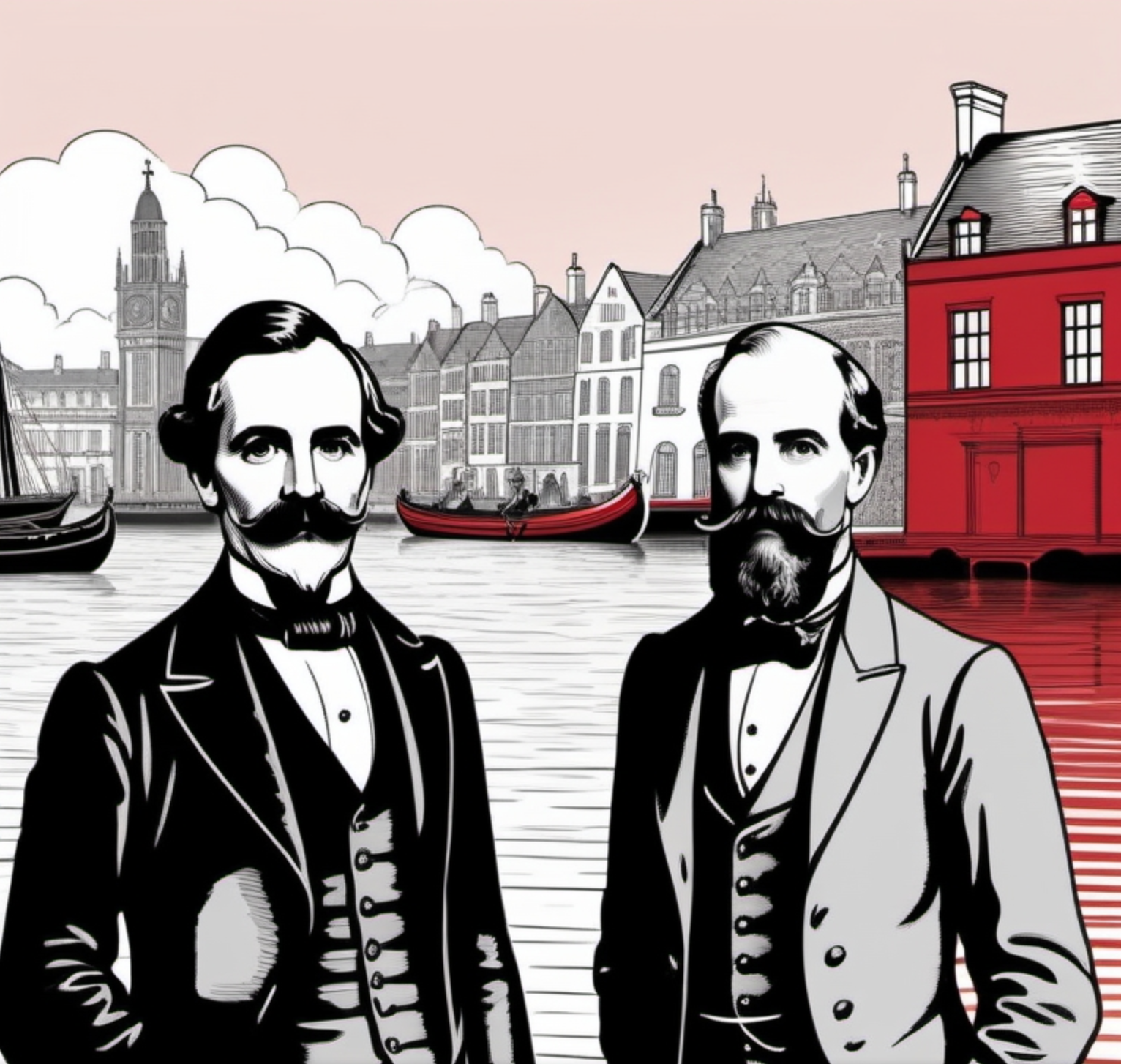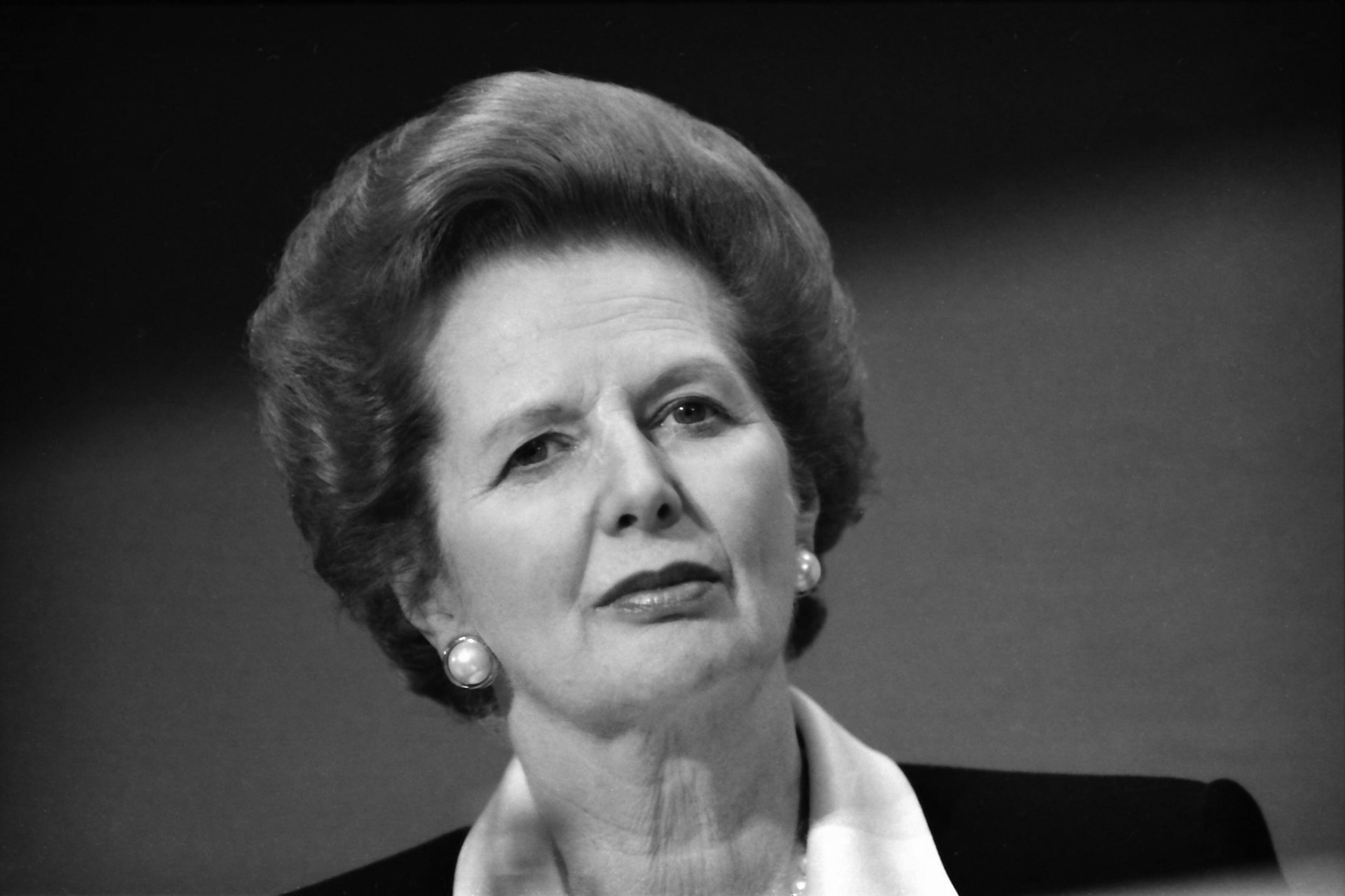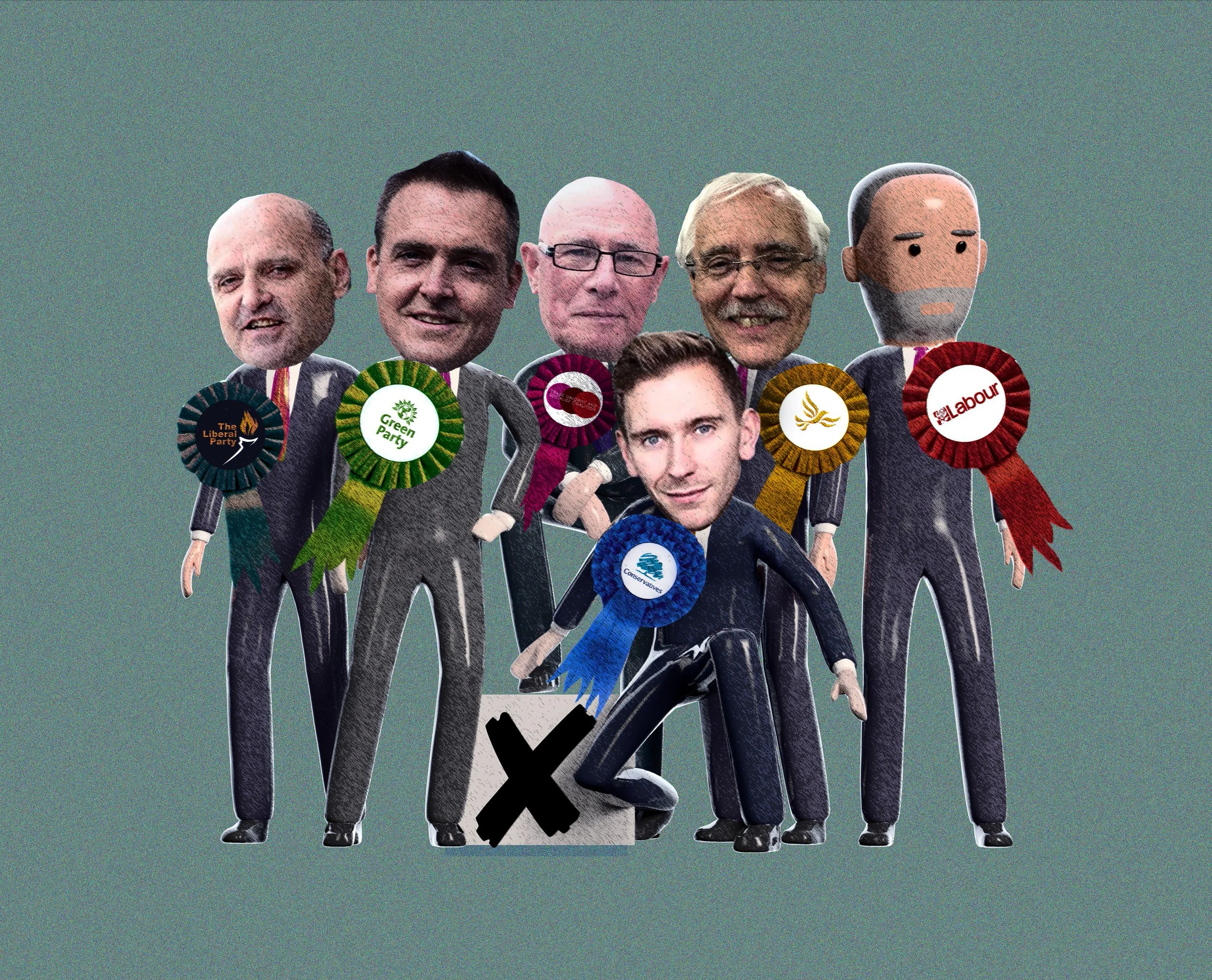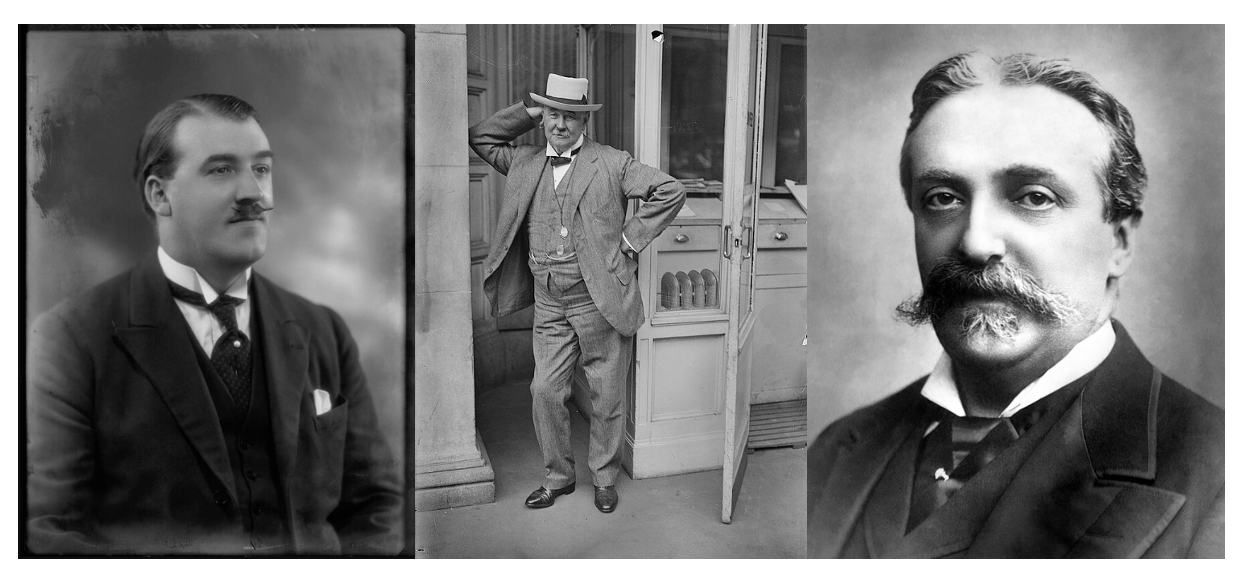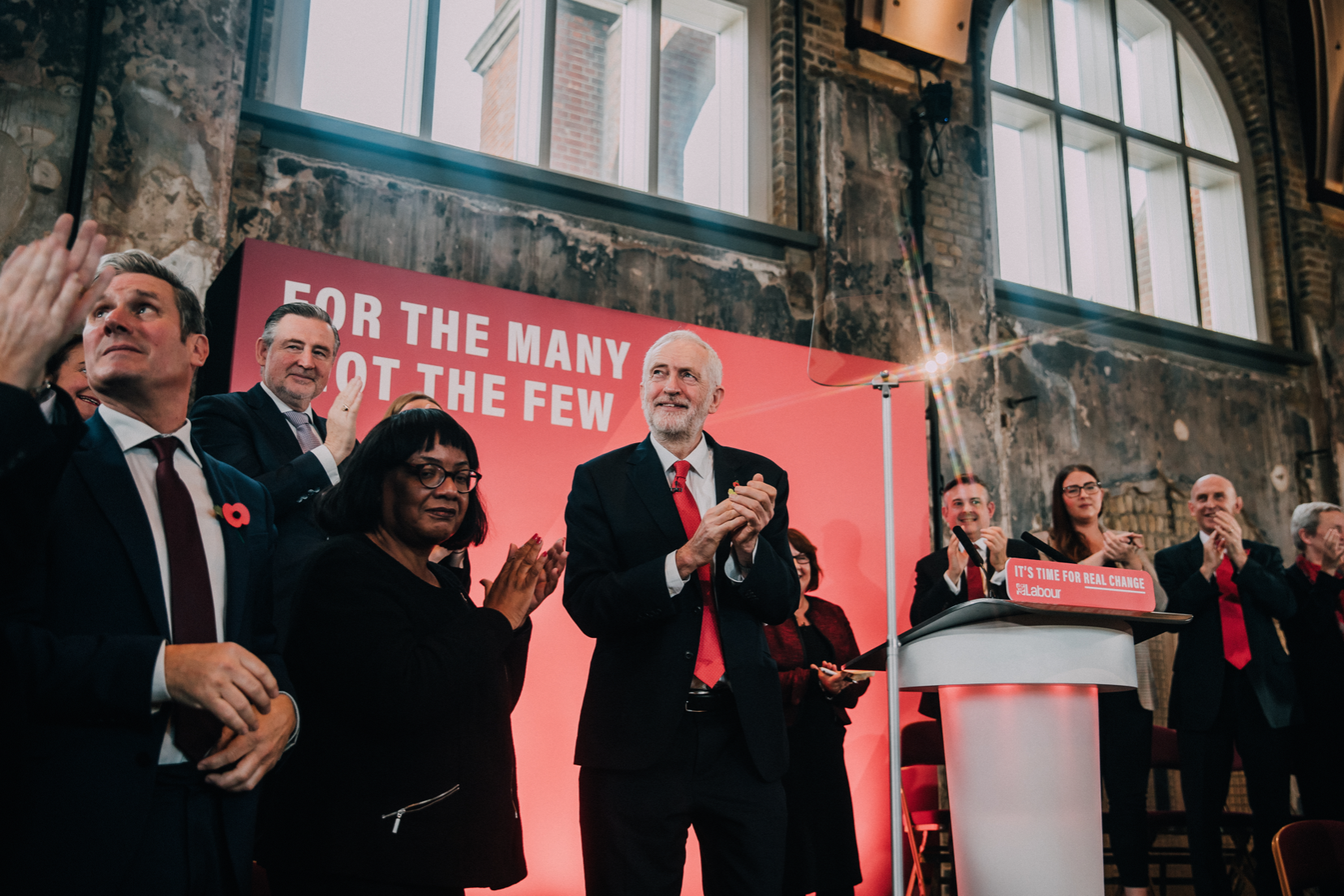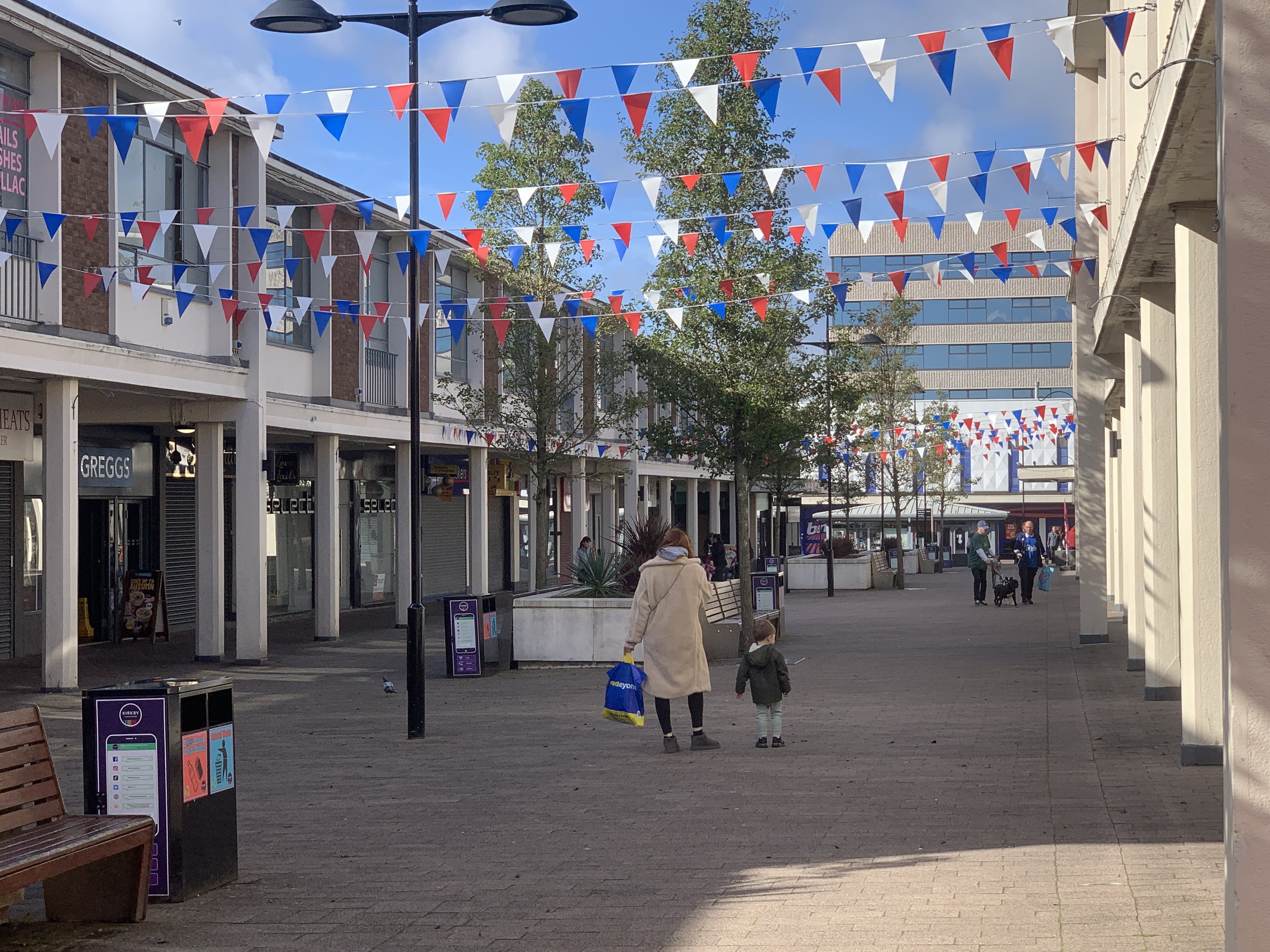Recent features
Not So Red: Labour’s Slow Rise in the Scouse Republic
Liverpool wasn't always the ultimate Labour stronghold. For much of the past century, Conservatives have dominated local and parliamentary elections. Historian of the Left, David Swift, charts Labour's surprisingly slow rise to power in not-so-red Liverpool.
David Swift
You don’t often see Liverpool compared to Iran. And certainly a stroll through the city centre on a Friday or Saturday night brings sights you probably wouldn’t see in downtown Tehran.
In an essay comparing the politics of Iran and Egypt, the sociologist Asef Bayat pointed out that Egypt, despite having strong popular support for Islamist politics and a weak middle class, never established a religious theocracy along Iranian lines. The difference being that in Iran, the government of the Shah had successfully eliminated all secular opposition – liberals, socialists, trade unionists – so the Mullahs were the only people in a position to take over, despite a lack of broader support for their project. So Egypt had an Islamic movement but not an Islamic revolution, and Iran had an Islamic revolution without much of an Islamist movement.
Over the past 100 years something similar has happened in the political transformation of Liverpool. From a bastion of working-class Toryism, Liverpool has become a city with the five safest Labour seats in the country. Other areas with similar demographics have seen Labour’s support slide in recent years, but in Liverpool the party’s dominance has continued to grow.
Yet curiously, beneath the surface, just like in Iran, the dominant political movement has been anything but strong. Liverpool has undergone this Labour revolution with a much weaker, organised Labour movement than other cities. Don’t believe me? Look at the history.
This year marks the centenary of the election of Jack Hayes, the first Labour MP to sit for a Liverpool constituency – who won the 1923 Edge Hill by-election. This breakthrough came roughly two decades after other ‘Labour heartlands’ such as Manchester, East London, Glasgow, Leeds and South Wales had elected their first Labour MPs.
Before and even after Jack Hayes’ triumph, Liverpool was solidly Tory. From 1885 to 1923, with just a few exceptions, the city’s nine constituencies were won by the Conservative candidate in every parliamentary election. Toxteth was represented by people with little claim to working class roots; people with grand-sounding names such as Henry de Worms and Augustus Frederick Warr. It is hard to imagine now but for 14 years the MP for rugged Kirkdale was a Baronet called Sir John de Fonblanque Pennefather.
The most notable exception to Tory dominance at that time was the Liverpool Scotland constituency, centred on Scotland Road, which was dominated by Irish immigrants. Held by the Irish Nationalist T.P. O’Connor from 1885 until his death in 1929, his victory remains the only time a British parliamentary seat has been won by an Irish nationalist party outside the island of Ireland.
Of course, the Liberals had the occasional reason to celebrate too, winning Liverpool Exchange in 1886, 1887, 1906 and 1910 as well as Liverpool Abercromby in their general election landslide of 1906. But even at that election – a wipeout for the Tories and their worst result until 1945 – the Liberal Party only managed to win two of Liverpool’s nine seats, with the Conservatives taking six out of the other seven.
An Irish Republican, Tory Baron and Liverpool’s first Labour MP walk into a bar. But who’s who?
Left to Right: Jack Hayes Labour MP for Edge Hill (1923-31); T.P. O’Connor the Irish Nationalist MP For Liverpool Scotland (1885-1929); and Baron Henry de Worms, Conservative MP for East Toxteth (1885-95). Image credits in respective order (left to right): Bassano Ltd, public domain via Wikimedia Commons; Bain - Library of Congress (1917); Alamy
Some commentators have claimed Liverpool politics are based on rebelliousness or innate defiance and a willingness to speak up and go against the crowd. Which makes what happened in the 1906 general election all the more fascinating. Dominated by the issue of free trade, the Conservatives lost badly at the national level because it was feared their plan to impose tariffs on imported goods would damage trade. And yet even in this election, in a town as totally dependent on trade as Liverpool, even in a port city, Liverpolitans put two fingers up to the national trend and voted for the Tories anyway. Was this an early example of that noted tendency to contrarian defiance or slavish support for the party of power?
Of course, at this time, the six-year-old Labour party was not a serious force around the banks of the Mersey and their leader Ramsay MacDonald – who later become the first Labour Prime Minister, knew it too. In 1910, after a visit to the city he seemed to accept they had no prospects of winning there any time soon, writing with a note of sour grapes that ‘Liverpool is rotten and we had better recognize it’.
Why was Liverpool so slow to support the party of the working class?
One explanation often put forward is the narrowness of the parliamentary franchise which dictated who got to vote. It’s claimed voting restrictions prevented many working people from making their voices heard and it’s certainly true that this affected politics at this time, though perhaps not always in the ways most commonly understood. From 1867, men in ‘borough’ constituencies (usually towns and cities like Liverpool) were able to vote in general elections but only if they were defined as a ‘householder’. This meant a man living independently by himself or with his wife and children who also paid a minimum of £10 a year in rent. In theory, most working-class men could now vote, but in reality it’s estimated 40% of men nationwide were disenfranchised until these rules were relaxed in 1918.
This was because the lack of affordable accommodation meant many men still lived at home with their parents or in houses with multiple families, and so fell foul of the rule. In a port city like Liverpool, where seafaring was the second largest source of employment, this would have been particularly significant because so many men worked away for long periods. The 1921 census found there were twelve times as many men without a fixed address or workplace in Bootle than in St Helens.
Nonetheless, some historians have challenged the idea the franchise disproportionately affected working-class voters, noting that, on average, men from working-class backgrounds found work, left home and started families earlier than their middle-class equivalents. As noted by Neal Blewett in an article for Past and Present, middle-class professionals were more likely to be lodgers, who very often couldn’t vote. It’s too easy to use the disenfranchisement of working-class voters to explain Tory dominance in the city - especially since women, who have tended to favour the Conservatives by wide margins, were unable to vote in general elections until 1918. Perhaps the limitations on the voting franchise hurt rather than helped the Tories. In her influential book, The Iron Ladies (1987), journalist Beatrix Campbell claimed Labour would have won every election between 1945 and 1979 but for women’s right to vote.
The influence of sectarianism overstated
It’s also too easy to blame ‘sectarianism’ for Tory rule in Liverpool. According to this analysis, conflict between Protestants and Catholics divided the working class vote, with Catholics favouring ‘home rule’ for Ireland supporting the Irish Nationalist party (the IPP), while Protestants opposing greater Irish autonomy voted for the Conservatives. The argument goes that the conditions for a Labour breakthrough in Liverpool only occurred after Irish independence in 1922, when the sting went out of the nationalist cause. Catholic votes transferred to Labour, whilst Protestants, with the nationalist issue seemingly resolved, felt less inclined to vote Tory.
But many historians, such as Sam Davies, have downplayed the importance of sectarianism, arguing instead that Tory dominance resulted from the weakness of the Labour party in local politics and splits in the anti-Tory vote.
Famously, Churchill sent gunboats on the Mersey in 1911 to quell a dockers strike, but despite this Liverpool was still voting Conservative. Meanwhile in Glasgow … Red Clydeside was already represented in parliament. Image: HMS Antrim, Ernest Hopkins, Public domain, via Wikimedia Commons
It’s instructive to compare the political situation in Liverpool to that of Glasgow - another town with a violent sectarian divide. While Liverpool outside of Scotland Road was staunchly Tory, in Glasgow, sectarian sentiment saw a surge in support for the Liberal Party. As far back as 1886, with the Liberal Government led by William Gladstone (a Liverpolitan), proposing Home Rule for Ireland under a less centralised United Kingdom, Catholic voters jumped at the opportunity to get behind the Bill. Nationally, the 1886 general election saw the Liberals lose over 150 seats as the issue proved unpopular. Yet in Glasgow, the Liberals won four of the city’s nine seats – with another two going to the ‘Liberal Unionists’ who, opposing the move, were no doubt supported by the city’s Protestants. Liverpool never saw anything like this degree of sectarian influence.
Back to that 1906 election, which by the way was only the second to be contested by the newly-formed Labour party. While Liverpool was busy voting Tory, in Glasgow, former shipyard worker George Barnes was elected as a Labour MP for Glasgow Blackfriars and Hutchesontown, a seat he held until he was elected for the new Gorbals constituency in 1918, alongside Neil Maclean, who won in Govan. By 1922, Labour was winning ten of the city’s 15 seats. In contrast, no Liverpool constituency elected a Labour MP until after the party had taken most of the seats in Glasgow.
“It is perhaps forgotten today, but back in the interwar years, the largest unions on Merseyside, the TGWU and the National Union of Seamen - representing dockers and sailors – had an inconsistent relationship with the Labour party.”
The importance of skilled workers and Nonconformists
One reason for Labour’s earlier breakthrough in Glasgow was its stronger concentration of skilled trades. Although like Liverpool, a major port, Glasgow relied less on distribution and more on the dominant industry of shipbuilding. This provided a stronger industrial base with many skilled jobs defended by well-organised trade unions. Even if we include the Cammel Laird shipyards in nearby Birkenhead, Liverpool never had a similar level of manufacturing jobs. There was far too much reliance on low-skilled, casual labour which was a lower priority for the wider trade union movement.
At this time, areas that voted Labour had either strong trade unions, or high levels of Nonconformist Protestants such as Baptists, Methodists, Quakers – or both. You can see this trend in places like South Wales, West Yorkshire, East Lancashire, and the Durham coalfield. Nonconformity was linked with moral and political liberalism: Nonconformists such as William Wilberforce had been prominent anti-slavery advocates, and were over-represented among critics of British imperialism. They also challenged elements of the British establishment such as the Church of England and the House of Lords. In Liverpool, however, the trade unions were small or weak, whilst most people were Catholics or Anglicans, with few Protestant Nonconformists.
It is perhaps forgotten today, but back in the interwar years, the largest unions on Merseyside, the TGWU and the National Union of Seamen - representing dockers and sailors – had an inconsistent relationship with the Labour party. In 1927, the Executive Committee of the Liverpool Labour Party (then known as the Liverpool Trades Council and Labour Party) was formed from clerks, postal workers, electricians, engineers, railwaymen, painters and insurance workers. Dressmakers, shop assistants, clerical workers, tailors and garment workers were all well represented in the membership – but representatives from the two dominant occupations in the city were conspicuous by their absence.
Tories still strong after World War 2 and the politics of normal
Even after the 1945 Labour landslide, the Conservatives continued to win elections in Liverpool. Tory MPs were elected for Walton and West Derby until 1964, and for Wavertree and Garston until 1983. At the 1959 local elections, six of Liverpool’s nine council wards were controlled by the Conservatives, and three of those were solidly working-class areas, including Toxteth and Walton.
During the 1970s, control of the council swung between the Tories and Liberals. When the Trotskyist Militant Tendency took over in 1983, they succeeded a Conservative-Liberal coalition.
When Labour was successful on Merseyside in this period it was not because of a strong local labour movement, but because political sentiment was tracking with the ‘normal’, with the city tending to vote in line with national trends
Speaking to political scientist David Jeffery, who studies electoral politics in Liverpool, he told me that after the Second World War there was a general trend towards the ‘nationalisation of politics’. By this he means that national rather than local issues became key determinants in deciding how to vote. Local politics began to matter a lot less, so the Liverpool vote tracked the national vote share. As elsewhere in the country, the party in power nationally would usually suffer in local elections.
As Jeffery explained, the Tory successes in council elections during the late 1960s were not driven by a surge in support for the Tories, but rather a collapse in the Labour vote due to the growing unpopularity of Harold Wilson’s Labour government in Westminster.
Then in the early 1970s, when Ted Heath’s Conservative government was unpopular, Labour and the Liberals did better in local elections, and in 1998, a year after Tony Blair’s Labour landslide, the Liberal Democrats once again took power of Liverpool City Council.
Prone to takeover – the problem with Labour’s low local membership
Even though there was a real change of the political culture and identity of the city in the 1980s, there was still not much of a labour ‘movement’. One of the reasons Militant was able to take over Liverpool Labour was because the local Labour party branches had relatively few members. They’d become hollowed out and simply didn’t have enough people to buttress against a well-organised and well-motivated sect.
Historically, in areas without strong trade unions there would be relatively few people in the local Labour party – put simply if you were not a union member or close to a union member you were far less likely to get involved with Labour. So once the unions lost their strength and influence from the 1980s onwards, alongside a decline in local government, the traditional working class routes into local politics dried up. Membership of Labour constituency branches (CLPs) in traditional working class areas has been on the slide ever since. As an example, the biggest constituency Labour parties today such as Hornsey and Wood Green in London have over 3,000 members, but one of Liverpool’s largest, Liverpool Walton, claims to have just over one thousand, and that might have been at the height of the Jeremy Corbyn membership surge.
One of the reasons Militant was able to take over Liverpool Labour was because the local Labour party branches had relatively few members. They’d become hollowed out and simply didn’t have enough people to buttress against a well-organised and well-motivated sect.
Just as in the early twentieth century, Liverpool today has a large working-class population, but it doesn’t have much of a labour movement – despite Labour consistently winning elections.
There have been well-supported social justice movements: such as during the dock strike of 1995-1998, the Hillsborough Justice Campaign, and more recently grassroots initiatives such as Fans Supporting Foodbanks. But this hasn’t translated into high membership or engagement with the Labour party itself.
Middle-class activists and the politics of identity
Labour’s membership surged under the leadership of Jeremy Corbyn from just 198,000 in 2015 to 564,000 by 2017. But how many of these new members were from traditionally working class communities? Creative Commons C.C.0 1.0 via Wikimedia.
As far back as Tony Blair, commentators have noted how the ‘Islington set’ have become increasingly influential in the politics of the Labour party. People whose personal circumstances had taken them a long way from the traditional Labour voter were now shaping the party’s direction. During Jeremy Corbyn’s leadership in the 2010s, membership of the party grew, but often those new members were not from the traditional voter base. London, by comparison to Liverpool, has far higher levels of middle-class graduates and these are exactly the kind of people who have historically joined political parties. It’s not surprising that in places with more middle class voters, there’s been increased enthusiasm and engagement with Labour. But back in the Labour heartlands, not so much. This relative lack of enthusiasm and political engagement can be seen by comparing the turnouts of the last mayoral races in Liverpool and London: in both cases, everyone knew that the Labour candidate would win, yet in London the turnout was 40%, in Liverpool it barely reached 30%.
In recent years, the Liverpool Left has become more radical on cultural issues such as race and ethnicity - but it’s doubtful whether the city’s population is as liberal as their representatives on these issues.
The website, Electoral Calculus breaks down the demographics and political culture of each of the UK’s 650 constituencies, and ranks them according to their political opinion on economics (Left versus Right), internationalism (Global versus National) and culture (Liberal versus Conservative). It then uses cluster analysis to identify the influence of one of seven ‘Tribes’ in each constituency - including ‘Progressives’, ‘Traditionalists’, ‘Centrists’, ‘Kind Young Capitalists’, ‘Somewheres’, ‘Strong Left’ and ‘Strong Right’. It also estimates how each constituency seat voted in the Brexit referendum, a much finer grain of breakdown than exists in the official statistics.
Let’s take a look at how it assesses Liverpool’s five safest Labour seats:
Liverpool Walton - Traditionalist
27 degrees Left, 3 degrees Globalist and 1 degree Conservative; 52% voted Leave.
Knowsley - Traditionalist
26 degrees Left, 2 degrees Globalist, 2 degrees Conservative; 52% voted Leave.
Bootle - Traditionalist
25 degrees Left, 3 degrees Globalist, 0 degrees Social; 50% voted Leave.
West Derby - Traditionalist
26 degrees Left , 6 degrees Global, 1 degree Liberal; 48% voted Leave.
Liverpool Riverside – Strong Left
21 degrees Left, 29 degrees Globalist and 18 degrees Liberal; 27% voted Leave.
As you can see, the top four constituencies are classed as ‘Traditionalists’, according to the Electoral Calculus formula. The people in these seats have, on average, left-wing economic views but cultural and social views that are centrist or conservative.
Traditionalist Kirkby. Small ‘c’ conservatism may rule when it comes to social and cultural views in many of the region’s Labour constituencies. Image Kirkby High Street (2023) by Paul Bryan
In a recent study into how local identities impact on voting behaviour in the Liverpool City Region, David Jeffery also found that while Liverpool constituencies are in the bottom quarter nationally in terms of pro-monarchy sentiment, they are still more pro than anti-monarchy. He found that only 18% of Liverpudlians feel ‘only Scouse’, just 5 percentage points higher than the 13% who feel ‘only English’, with the rest feeling some mixture of Scouse and English.
What can we read into this?
It appears that despite the victories of the Labour party in parliamentary and local elections, there is a large amount of small ‘c’ socially conservative sentiment in the city. That is why up to three constituencies likely voted Leave, and why UKIP came third in the 2014 local elections – only 969 votes off the Greens in second place. They did especially well in working-class wards such as Club Moor, County, Fazakerley, and Norris Green.
This data suggests there’s a risk of Liverpool Labour overreaching on culture, as happened recently with the Scottish National Party (SNP). Despite Scotland’s population being slightly more sceptical on trans rights than the UK average, the SNP leadership assumed they could push forward with radical gender policies - an approach which led to Kate Forbes, who opposes same-sex marriage, coming within 3,000 votes of winning the party’s leadership election.
Within the past year, the SNP has gone from looking invulnerable to now polling only 1% ahead of Labour. Obviously this has not all been down to overplaying their hand on cultural issues, but nonetheless it’s a salutary warning for Liverpool Labour about the dangers of hubris, and mistaking the transformation in the politics of the city for a transformation in its culture.
In the hundred years since the election of the city’s first Labour MP, Liverpool’s support for Labour appears stronger than ever. But history suggests an unpopular Starmer government and continued chaos at the municipal level could well see the party lose power locally and for the majorities of the city’s MPs to be chipped away. The city’s current loyalty to Labour cannot be taken for granted, either by national politicians looking to Liverpool for lessons, or by local figures who might mistake voting patterns for political and cultural radicalism.
David Swift is a historian and writer specialising in Left wing activism who has written for publications such as the New Statesman, The Times, Tribune and Unherd. He is the author of three books including A Left For Itself; and The Identity Myth.
His latest book, Scouse Republic? A Personal History of Liverpool, will be published in 2024 by the Little, Brown Book Group.
*Main image created on Stable Diffusion.
Referendum or bust – Liverpool’s last chance?
A discredited administration hamstrung by scandal. A weakened leader eyed by pretenders to the throne. A collapse of trust. And, underlying it all, a sense of drift and a loss of status in the world. For Boris Johnson’s Britain read Joanne Anderson's Liverpool. Both increasingly tottering on the precipice.
Liam Fogarty
A discredited administration hamstrung by scandal. A weakened leader eyed by pretenders to the throne. A collapse of trust. And, underlying it all, a sense of drift and a loss of status in the world. For Boris Johnson’s Britain read Joanne Anderson's Liverpool. Both increasingly tottering on the precipice.
Of course, it would be unfair to blame the city's current Mayor for more than a fraction of the woes afflicting Liverpool and its council. But her discarded pledge of a referendum to decide on whether to keep Liverpool's mayoral system was more than just another politician's broken promise. It was an affront to local democracy. The pitifully small response to the council’s subsequent governance consultation – just 3.5% of Liverpool residents replied - was inevitable. Launched in March, and conducted almost entirely online, the process was an artist's impression of a democratic exercise. The letter sent to each city household, directing its recipients to the Liverpool – Our Way Forward website, looked and read like a tax demand. Residents had 3 months to reply but a council taxpayer-funded "Have Your Say" supplement to promote the consultation was published with the Liverpool Echo on June 10th a mere ten days before the submission deadline. Perhaps if they were going to be this half-hearted they shouldn’t have even bothered. Its four vacuous pages contained plenty of room in which to set out the arguments for and against the various governance models on offer. Incredibly, it did not do so. An opportunity for meaningful engagement with Echo readers was spurned in what became a literal waste of space.
So what is to be done?
In his ground-breaking mayoral election campaign last year, as Liverpool absorbed the findings of the Caller Report into council misconduct, Independent candidate and eventual runner-up, Stephen Yip, called for a "re-set" of Liverpool City Council. He demanded top-to-bottom reforms in response to Caller's damning discoveries. The re-set phrase proved popular and was soon taken up by Labour's candidate, Joanne Anderson during her campaign. Once elected, however, she abandoned her commitment to resolve the mayoralty issue by means of a public vote, claiming a consultation would cost less than a full referendum which she deemed too expensive to justify. Since Joanne’s election, we have seen backsliding on the promises of more transparency and scrutiny of council business. Caller’s recommendation for a significant reduction in the number of councillors has been ignored, with the current 90 councillors being reduced merely to 85. Meanwhile, government-appointed commissioners now report that in several respects our council is going “backwards not forwards” in dealing with the issues it faces.
The loss of millions of pounds thanks to a botched energy contract showed systemic failings were not confined to the departments excoriated by Max Caller. There’s talk of more commissioners being drafted in, and more departments falling under their iron fist as skeletons continue to tumble out of closets. Not so much a re-set, then, as a return to politics as usual in Liverpool.
Stephen Yip and I agree that the first step towards an actual re-set is to let the people of Liverpool decide how their city should be led. Liverpool is local democracy’s ‘black hole,’ the only major city in England to have repeatedly denied its residents the chance to vote on how it should be run. The idea that Liverpool's citizens should be able to decide whether to keep or scrap the mayoral system is anathema to the control freaks at the Town Hall. Our politicians won't give us the mayoral referendum we are entitled to unless they are forced to.
Former Independent Mayoral Candidates, Liam Fogarty and Stephen Yip, launch ReSet Liverpool, a campaign to force Liverpool City Council to run a full referendum on city governance.
ReSet Liverpool
That’s why we are launching ReSet Liverpool, a petition-led campaign to give the people of the city the referendum they were promised. We reject the council's attempt to take such a huge decision on the city’s governance by itself. Options for the future running of Liverpool should be put directly to its residents at the ballot box.
Our petition aims to secure the 16,500 signatures (5% of the city's electorate) needed to trigger a referendum on whether Liverpool should retain the post of directly elected Mayor. A referendum held next May to coincide with scheduled elections for a Mayor and local councillors would come at minimal additional cost.
The final say on this issue should belong to the people, not politicians. It’s a matter of principle. Self-serving attempts to sideline the electorate are destructive. They weaken the already-strained connection between the people of Liverpool and their local council and lead to greater cynicism and indifference.
“The final say on this issue should belong to the people, not politicians. Options for the future running of Liverpool should be put directly to its residents at the ballot box.”
Without a referendum, Liverpool’s politicians are likely to revert to type. If they do move to abolish the mayoralty without public consent, then the simmering – and largely unreported - power struggles inside the council’s majority Labour group will burst open, absorbing the time and energies of all those involved. Mayor or no Mayor, in May 2023 every Liverpool council seat will be up for grabs on new electoral boundaries. As what is now 30 wards morphs into a whopping 70 smaller ones, once safe council positions will be under threat as councillors from the same party will be forced to compete with each other. The jockeying to be selected as candidates has already started and local parties’ fratricidal tendencies will be given full rein. The ward elections themselves will provide ideal conditions for the kind of hyper-local political warfare that appeals to party activists but no-one else. The chances of such a process producing a clear city vision, strong civic leadership and a coherent policy platform will be remote. Not for the first time, Liverpool politics will be all tactics and no strategy.
For ReSet Liverpool, a referendum on the mayoralty is the very least the people of this city deserve. May be it can also be the start of a broader campaign to reform our council and renew our city. If you are registered to vote in Liverpool, download a petition form (HERE) and if they live in Liverpool, get your friends, family and neighbours to sign up. Together, we have a chance to help kick-start that overdue process of civic renewal. It could be the last chance we’ll get.
Liam Fogarty is co-founder of ReSet Liverpool. A journalist, broadcaster and lecturer, he ran as an independent in Liverpool’s first Mayoral Election in 2012, finishing second.
Further Information
To find out more about Reset Liverpool and to download a copy of the petition, visit www.resetliverpool.org. Note: Only Liverpool residents over the age of 18 who are registered to vote can sign the petition. Completed petition forms should be returned to:
Reset Liverpool
301 Tea Factory
Fleet Street
Liverpool
L1 4DQ
Share this article
What do you think? Let us know.
Write a letter for our Short Reads section, join the debate via Twitter or Facebook or just drop us a line at team@liverpolitan.co.uk
Child Labour
The latest local election results confirmed an ongoing trend – Liverpool’s councillors are being recruited at an ever younger age. But with low turnouts and widespread voter apathy, what does the emergence of ever more fresh-faced political candidates say about the health of Liverpool’s political culture? And should experience and proven competence trump youthful enthusiasm?
Michael McDonough and Paul Bryan
The latest local election results have confirmed an ongoing trend - Liverpool councillors (especially Labour ones) are being recruited at an ever younger age.
Sam East (Warbreck) and Ellie Byrne (Everton) both in their early twenties, join the likes of Harry Doyle (Knotty Ash), Frazer Lake (Fazakerley) and Sarah Doyle (Riverside) who became councillors at ages 22, 23, and 24 respectively (give or take the odd month – feel free to correct us). The latter three are now all serving in senior positions as part of the Mayor’s Cabinet.
Labour are not the only ones playing to this trend though. On the Wirral, Jake Booth, 19, took a seat last year for the Conservatives while in Liverpool the Tories recently appointed the frankly mature in comparison, Dr David Jeffery as their Chairman at the ripe old age of 27 (though he’s not a councillor).
The emergence of ever more fresh-faced local political candidates, which is often presented as energising and key to connecting with the city’s younger generation is nevertheless curious. Traditionally, solid life experience and proven competence in some other field of endeavour have been seen as valuable traits essential to making a decent fist of a job in public office. Demonstrable skills and previous success, which take time to accrue, have acted as a semi-reliable predictor that a candidate will land on their feet. But that kind of thinking is out of fashion. A fresh, young face is the recipe de jour.
Except it doesn’t seem to be working. The turnouts in the latest by-elections were abysmal- the puny 17% turnout in Warbreck putting the even more atrocious 14% in Everton to shame. Perhaps this should be a lesson that viewing politics though the lens of identity resonates far less than actually being credible.
None of this is to suggest that young people shouldn’t be in politics - far from it! And you could argue the older generation haven’t exactly pulled up any trees. Age and ability are not guaranteed bedfellows and we’ve all met unwise old-hands who are best left in the stable. But surely, even amongst the parroted outcries of ageism, track record counts for something?
The comments in the Liverpool Echo were a peach. “Shouldn’t those two be in school?” said one. “What life experiences can they bring to their roles. Jesus Christ!” said another. L3EFC expressed some doubt that “People fresh out of Uni” would be able to “stand up to the people who grease the wheels in this town.”
Which means we have to ask the question… can it be right that such inexperienced councillors are representing these deeply challenged areas which are crying out for leadership that can deliver on the ground? Will Councillor Ellie Byrne, the daughter of a sitting MP, deliver the kind of positive change Everton desperately needs? Does Councillor Sam East have the real-world nous to effectively tackle the issues holding back Warbreck? Or are these two eager and no doubt able politicians the product of a disinterested local Labour machine that doesn’t care or need to care about who it puts forward for election?
“The comments in the Liverpool Echo were a peach. ‘Shouldn’t those two be in school?’ said one. ‘What life experiences can they bring to their roles? Jesus Christ!’ said another.”
Of course, there are several reasons why young candidates are so attractive to party leadership. On the upside, they offer the classic and generally much needed injection of new blood. They hold out the potential for new ideas and new energy. And in Liverpool, where there is a dark shadow over much that has gone before, you can understand the desire to clear the decks and start afresh. But there’s another darker reason. Young councillors are pliable. They’re more likely to do what they’re told. While they’re still building their confidence, they won’t challenge the top dogs and that’s useful when your grip on power is weak. Mayor Joanne Anderson, herself relatively inexperienced as a councillor, has introduced young members to her Cabinet with responsibility for key portfolios including Development and Economy, Adult and Social Care, and Culture and Tourism. Without casting any aspersions on Cabinet members talents or potential, you can see their appeal.
We have to ask where the Liberal Democrats, Liberals, Conservatives and Greens are in all of this? Despite making admirable gains in many wards they still haven’t made much of a dent in the city’s ‘red rosette’ Labour strongholds and this despite the Caller Report offering them ammunition on a platter. As strong a campaign as the Green Party’s Kevin Robinson-Hale ran in Everton (albeit clearly under-resourced) he still only polled 362 votes. In Warbreck, the Lib Dems Karen Afford polled 874. This is not what engagement looks like. Perhaps it’s time all parties in the city took a long hard look at who they’re putting forward for local elections, what pledges are being made and why for the moment so many amongst the electorate simply couldn’t give a toss about what their local political parties have to say.
Ellie Byrne’s vacuous election promises were a case in point and a classic example of how an unengaged electorate enable party cynicism. Why bother getting too specific or measurable with your commitments when no-one is asking for it might be the rejoinder of the spin doctors, but it feeds the descent into low participation. A deeper critique suggests a more existential worry – our parties just don’t have any answers, scraping around in the bargain bin of ideas, and plucking out little more than platitudes of intention. Heaven forbid someone might actually come up with a plan to drive more employment.
It must be said in Liverpool the wheels turn more slowly. Many voters’ unflinching loyalty to party blinds them to individual failures, provoking little more than a shrug of resignation. Or worse, it depresses their sense of the possible. And that’s deadly, because if you don’t believe you can do much in life, the world has a tendency to deliver on your expectations.
But you can only hoodwink the voters for so long. When it comes to delivering results in the four years of office a councillor receives, competence beats willing nine times out of ten. A fresh face may serve you well enough amongst the cheap thrills of an election campaign, but does it really get the job done? Eventually, without the ideas or the know-how to deliver on them, you’ll get found out.
There is the temptation in Liverpool to think that little changes in the political sphere. That despite the odd bit of noise within the ruling party, on the outside all is stable and unchanging. A recent electoral modelling exercise suggested the upcoming 2023 boundary changes in electoral wards would have only the most superficial of effects. Labour, instead of holding 78% of council seats would now hold 79% it predicted. So much for turbulent times.
But bubbling away under the surface, something is happening and the results will be unpredictable. The recent by-elections were a warning, not just to Labour but to all parties. Sooner or later, voters will do what voters do. They don’t like being taken for granted.
All of this opens up a wider question about the city and its communities. Why are there so few people from a more professional background standing for election? What exactly is turning them off? Many of these people will be successful in their own lives. Could there be some really strong politicians and visionaries amongst the roughly 70% who don’t vote in local elections? Are there talented leaders amongst those Liverpolitans who look on at an unwelcoming, opaque and sewn-up political culture with distaste and disengagement?
Decades of brain-drain have undoubtedly had an impact. Liverpool has jettisoned so much of its professional class who left in search of opportunity they could not find at home. And now the parties are trying to fill the void by turning to ever younger graduates. If the trend continues we may well see in the coming years candidates organising their election campaigns around their GCSE examination calendar. An 18-year old Jake Morrison, who triumphed in 2011 over former Council Leader, Mike Storey to win the Wavertree seat may have well been a harbinger of times to come. He retired from politics aged 22.
Of course, at Liverpolitan, we always wish newly elected councillors well and hope to be pleasantly surprised by the new additions but we’d argue their election success is symptomatic of a much bigger elephant in the room, a room that clearly has fewer and fewer adults. It is a room dominated by established party complacency and a dash of arrogance; a city electorate detached from politics and a political culture devoid of real local talent and energy putting itself forward.
Michael McDonough is the Art Director and Co-Founder of Liverpolitan. He is also a lead creative specialising in 3D and animation, film and conceptual spatial design.
Paul Bryan is the Editor and Co-Founder of Liverpolitan. He is also a freelance content writer, script editor, communications strategist and creative coach



